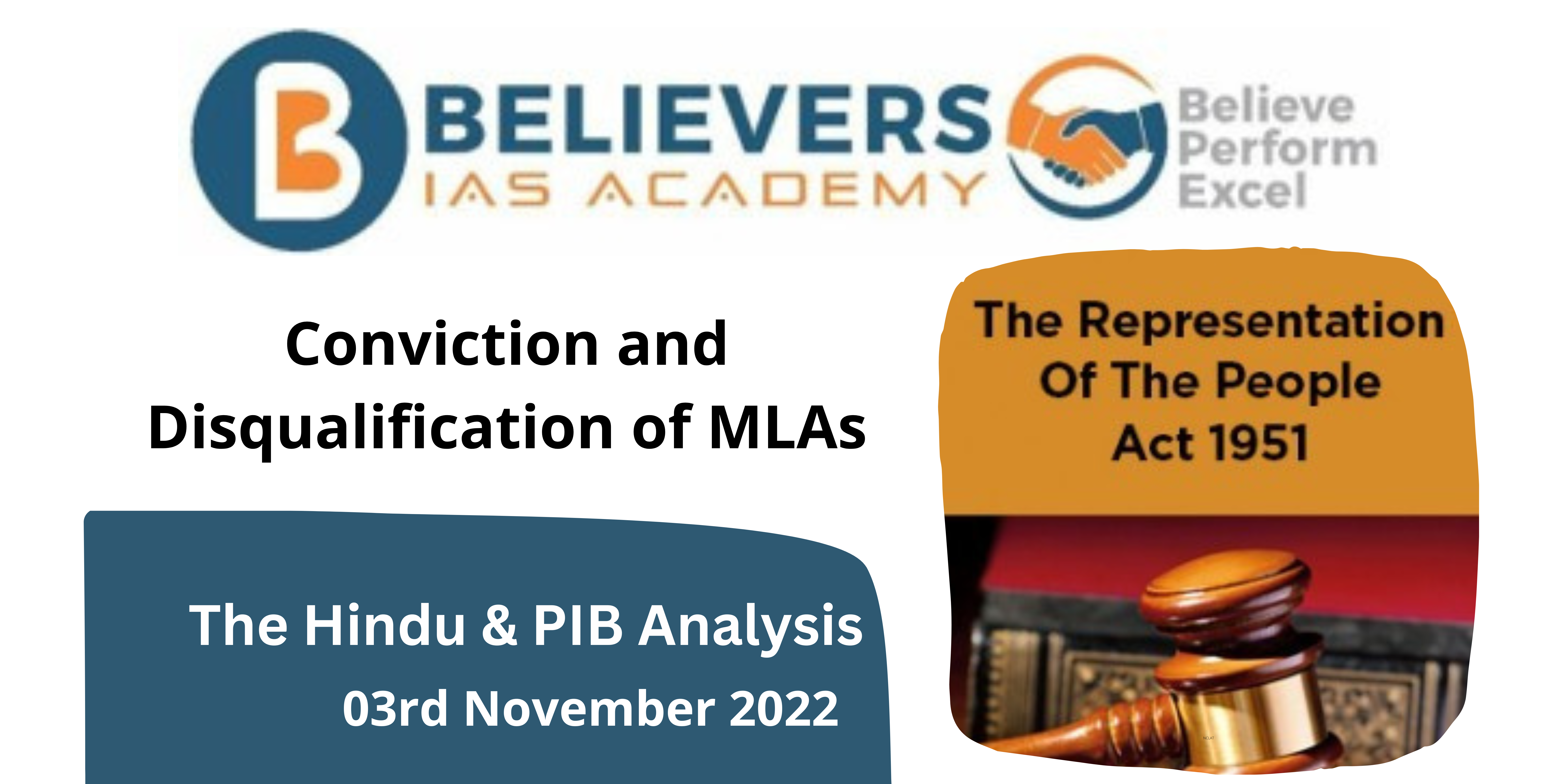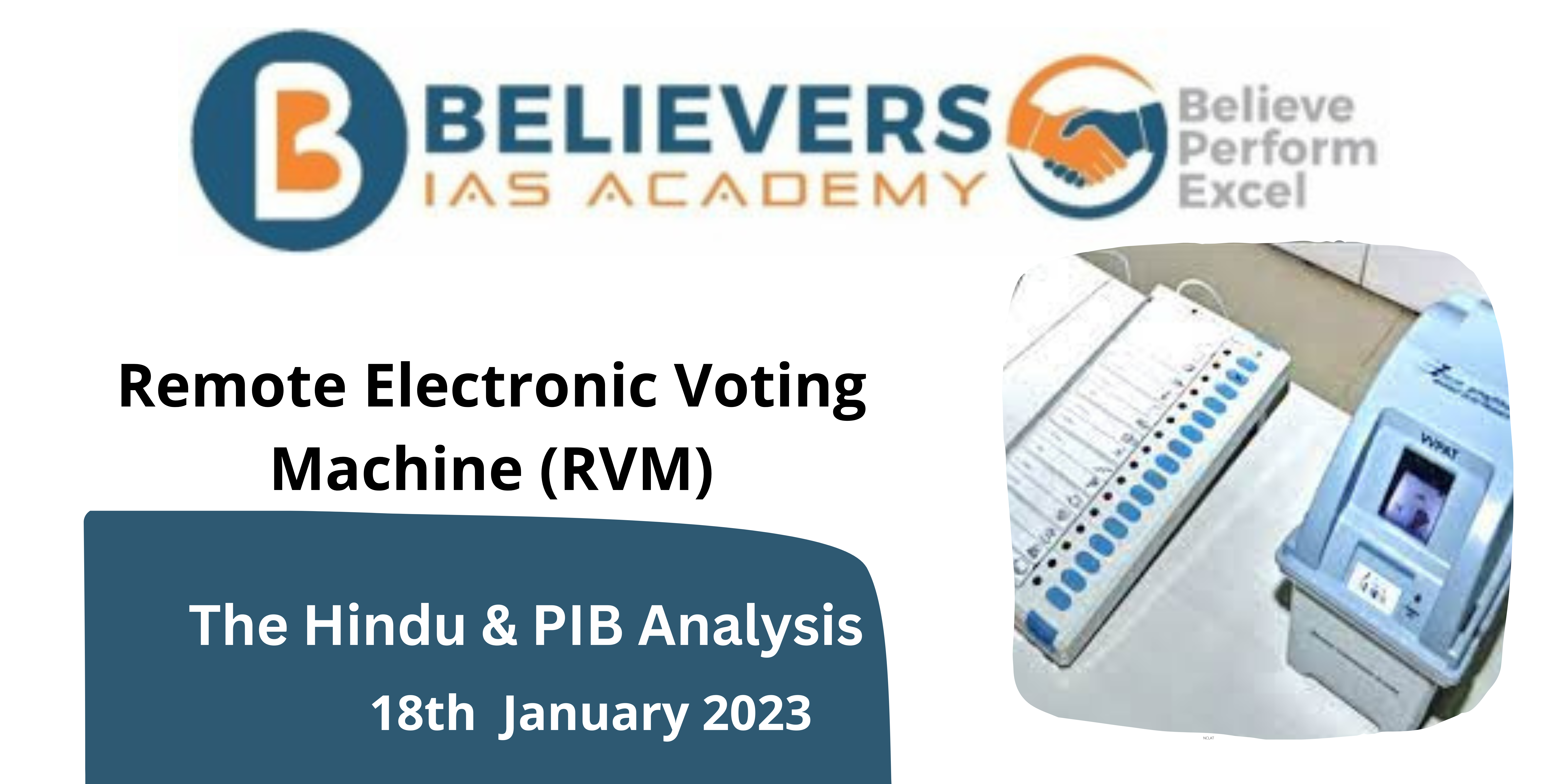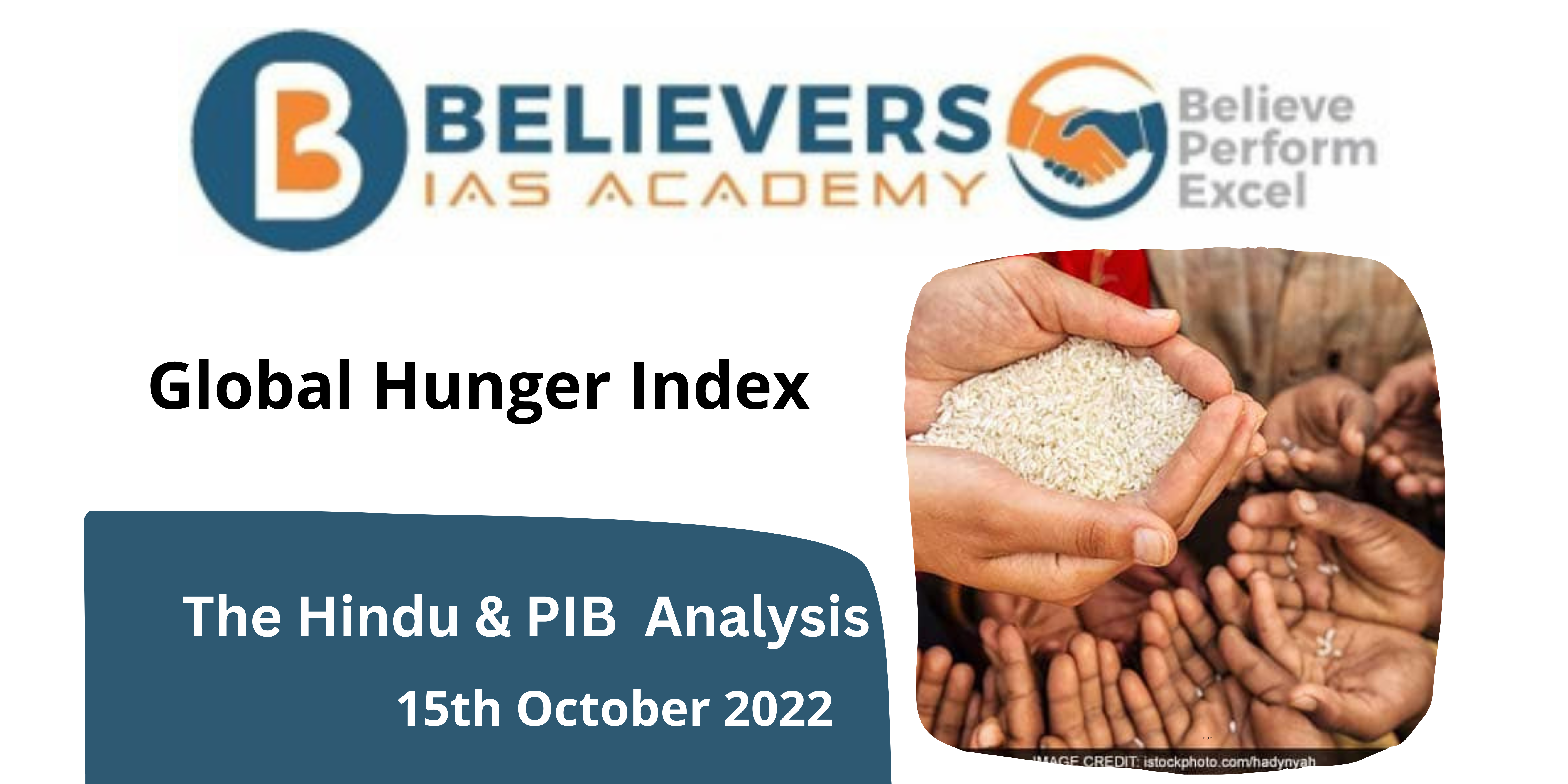Conviction and Disqualification of MLAs
#GS-02 Governance
For Prelims:
About Representation of the People Act (RPA), 1951:
- Part XV (Articles.324-329) of the constitution empowered Parliament to make laws to regulate the electoral process.
- The Representation of People Act, 1951 was passed by the Parliament in accordance with these provisions.
Representation of the People Act, 1950.
This Act makes provisions for:
- Seat allocation in the Lok Sabha and the Legislative Assemblies through direct elections.
- The voters’ qualifications for the elections.
- The delimitation of constituencies for both Lok Sabha and Assembly elections. The extent of the constituencies would be determined by the Delimitation Commission.
- The Indian President can alter the constituencies after due consultation with the Election Commission.
- Preparation of the electoral roll. A person cannot be enrolled for over one constituency. He or she can be disqualified and barred from voting if found to be of unsound mind or is not an Indian citizen.
Representation of People Act, 1951
This Act makes provisions for the conduct of elections in India.
- It also talks about corruption and other illegal activities related to elections.
- The Act makes provisions for dispute redressal in matters connected to elections.
- It also talks about the qualification as well as grounds for the disqualification of MPs and MLAs.
Section 8 of RPA:
- Section 8 provides for disqualification of MLAs or MPs on conviction for certain offences.
- There are two categories of criminal cases that attract disqualification upon conviction.
- In the first category are offences that entail disqualification for a period of six years upon any conviction.
- Major IPC offences are included under this head: making speeches that cause enmity between groups (Sec.153A) and doing so in a place of worship (Sec.505), bribery and personation during elections and other electoral offences, offences relating to rape and cruelty to women by husband and latter’s relatives.
- The second category includes serious provisions of special laws such as the Protection of Civil Rights Act, Customs Act, Unlawful Activities (Prevention) Act etc are among the category of offences that entail disqualification regardless of the quantum of punishment.
- All other criminal provisions form a separate category under which mere conviction will not entail disqualification.
- Section 8(4) of the RPA gave the legislators who were convicted, a grace period of three months.
- If within that period, the convicted legislator files an appeal or revision application, disqualification will not take effect until the disposal of the appeal or application.
- In Lily Thomas vs. Union of India, the Supreme Court struck down clause (4) as unconstitutional.
- The Supreme Court has the power to stay not only the sentence, but also the conviction of a person.




